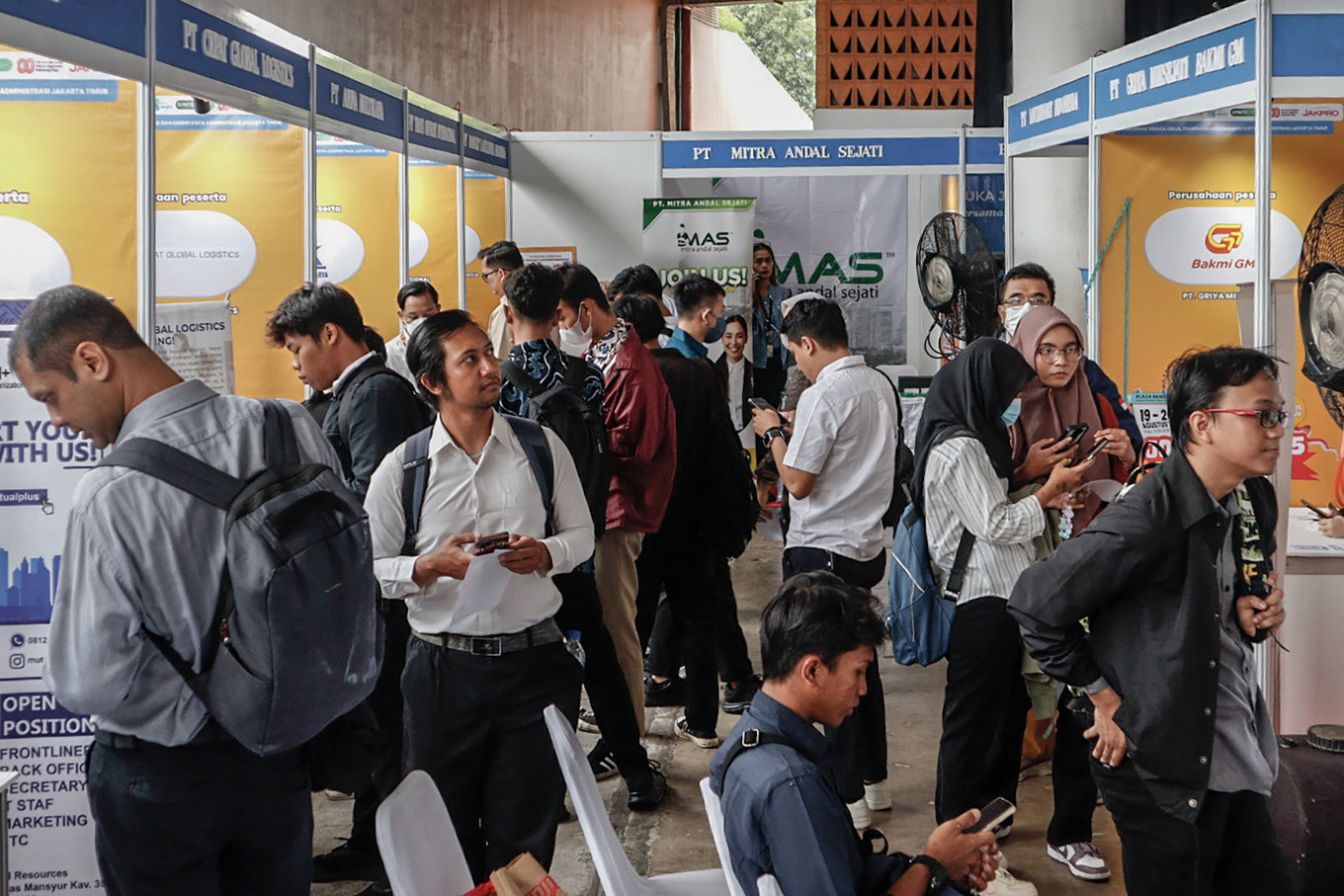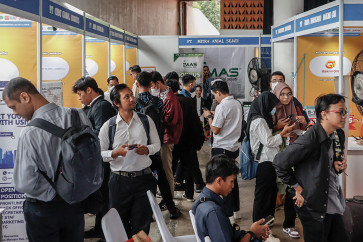Popular Reads
Top Results
Can't find what you're looking for?
View all search resultsPopular Reads
Top Results
Can't find what you're looking for?
View all search resultsGraduate unemployment, what has gone wrong?
Indonesia needs a model that values skilled workers, fair compensation and sustainable growth, which allows businesses to strengthen the economy while fostering loyalty and creativity among young professionals.
Change text size
Gift Premium Articles
to Anyone
I
t was once assumed that life for post-Ivy League graduates would be easy: A full-ride scholarship, multiple internships, leadership titles and a high-merit GPA. Yet, what is that worth when hundreds of job applications end with the familiar refrain, “After careful consideration, we regret to inform you…”?
This outcome has become normalized, with numerous TikTok and LinkedIn influencers now setting a standard of submitting hundreds of applications, suggesting quantity over quality. The media recently highlighted stories of college graduates forced into roles, such as ride-hailing drivers, with salaries barely sustaining them.
As the old saying goes, “Kejarlah ilmu sampai ke negeri Cina” (pursue knowledge as far as China). But now that they have it, what is its practical value? These graduates often end up surviving on the bare minimum, scrambling just to make it to the next day.
Education used to be the assurance: The higher the degree, the higher the pay was guaranteed. Phrases like “pursue your master’s degree” and “reach the highest education possible” are often glorified in Indonesia as standardized markers of life achievement, the supposed benchmark of a successful career path. This statement worked decades ago, when a higher degree was harder to pursue.
This assurance, however, is no longer relatable. More than 1 million graduates (undergraduate, master's and PhD candidates) find themselves unemployed, trapped in a vicious cycle of unpaid or poorly paid internships in Indonesia. This practice devalues a graduate's time and education, forcing them to compete for entry-level positions with years of "experience" that are merely extended, noncommittal trial periods.
Considering the investment and opportunity cost incurred for their education, this employment situation not only delays financial independence but also fosters significant self-doubt and insecurity, hindering both professional and personal growth. The lingering question is whether pursuing a passion is still viable when capitalism scatters the idealism of top graduates. How can graduates contribute back to society with their knowledge if they are unable to be self-sufficient?
Noble professions are often undervalued. The recent debates in Indonesia over teachers being paid at or near minimum wage illustrate how even the most essential roles are undermined and simultaneously expected to adapt to the rapidly changing demands of the education system. While education remains the root pathway to improving one’s social and economic status, these conditions only deepen the vicious cycle in which the rich become richer and the poor remain trapped in poverty.



















